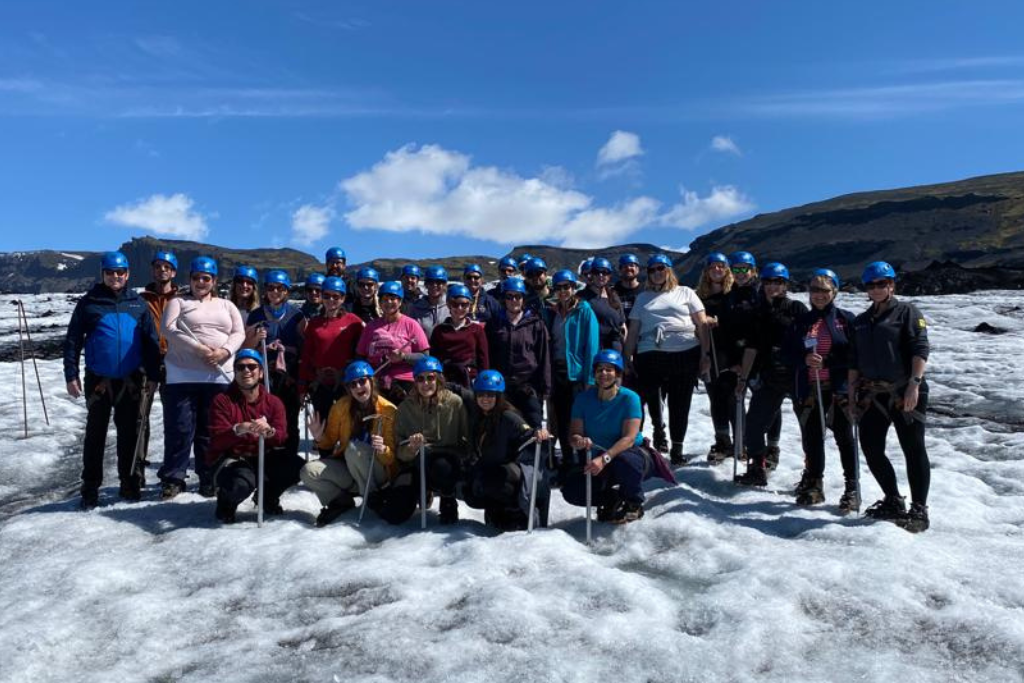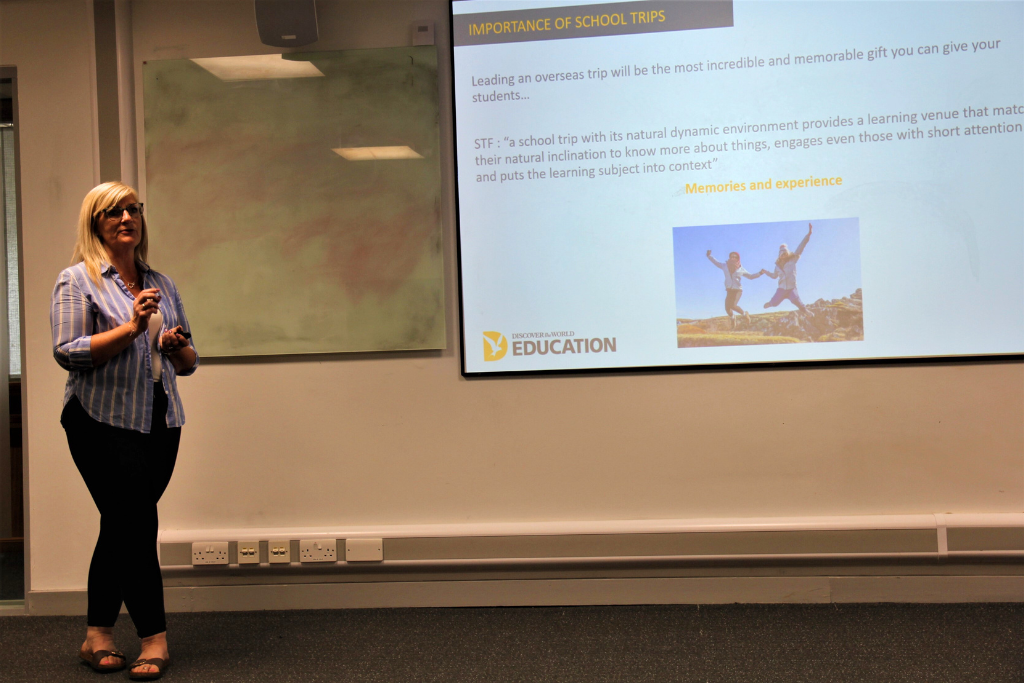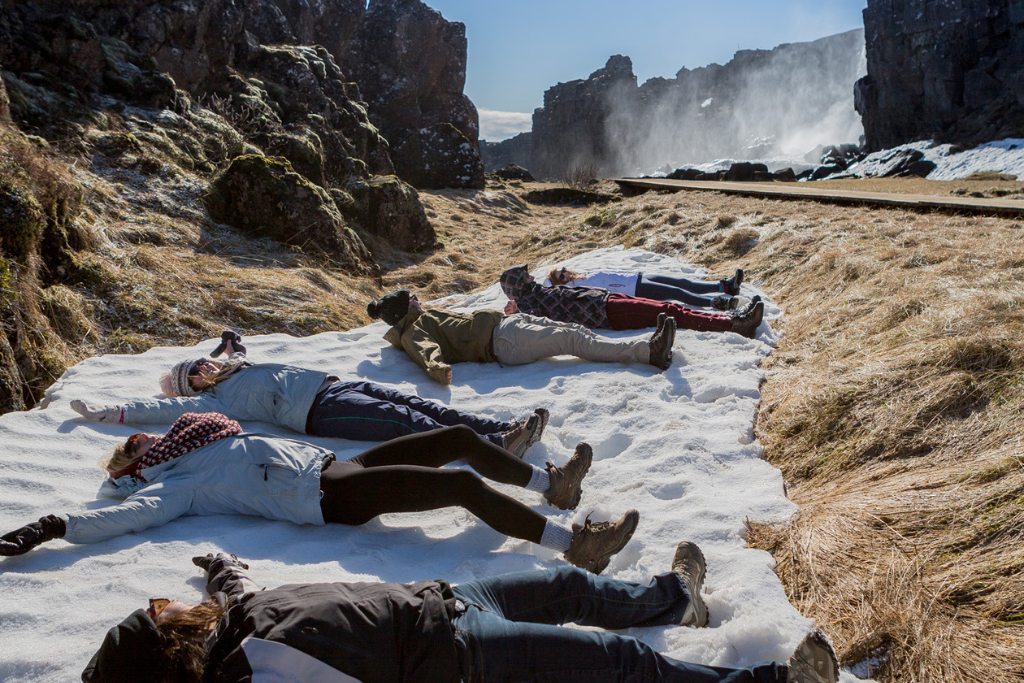Field trip planning: How to book a great school trip
A successful school trip depends on how well it’s planned. Our complete guide covers everything you need to know.
Taking lessons out of the classroom and going on a school trip is an excellent way to enhance learning, experience new cultures and learn new skills. But taking large school groups abroad can be a daunting thought. Don’t worry though! Our complete guide will let you know everything you need to get your trip off the ground.
This blog post will cover:
Steps for planning your school trip
How to choose a school trip provider
Launching your school trip to parents
School trip planning checklist
Tips from our experts
Steps for planning your school trip
The success or failure of any school trip lies in the planning.
Not only do you want to make sure your trip offers educational value and you achieve your desired learning outcomes, but you also have to think about completing risk assessments, health and safety, securing parental permission, budgeting (and more!)
Here’s how to get started when planning your school trips:
Set clear objectives
First things first, decide what you want your students to get out of the trip. This might be:
- A focus on an area of the curriculum, particular topics or learning objectives
- Combining more than one subject
- Sticking to your budget
- Any specific guidance you’ll need from trip providers
- Specific activities or day trips
Once you’ve highlighted clear goals, it’s handy to write them down so you can keep them in mind throughout the whole planning process.
When you constantly refer back to these objectives, your planning will stay on track.
Choose a destination
Once you understand your trip’s objectives, it’s time to choose a destination.
Certain subjects lend themselves to a particular destination so you may already have somewhere in mind. For example, if you’re studying geography, you may be considering Iceland, but if your students are learning about history and religion, you may be thinking of travelling to Sicily.

Despite this, it’s important to browse all options because sometimes the lesser-known destinations make the best trips!
Choose a date
It’s crucial to allow yourself plenty of planning time. Set a date far enough in advance as this will allow time to promote your trip, complete risk assessments, sign permission slips, and deposits to be paid without any last-minute rush.
We recommend planning a trip around 12- 18 months in advance to allow plenty of time.
Being flexible with your dates is important, too.
Most schools prefer to travel on the first weekend of half-term breaks meaning these dates get booked up fast.
If you have some wiggle room with dates, you’re also more likely to find more pricing options. Another reason to start planning in advance!
Provide educational value
One of the main reasons for booking a school trip is the educational benefits they offer. A study by the Royal Geographical Society found that 82% of KS2 pupils said field trips helped improve their learning.

It’s important to tailor your itinerary to the learning outcomes you want to achieve. Once you’ve set clear learning objectives based on what your students are studying, you can plan activities and day trips that are suited to them.
For example, if you’re learning about geothermal energy, a field trip to Deildartunguhver in Iceland (Europe’s most powerful hot spring) is perfect. But if you’re focusing on team building, you might book water rafting in Norway.
There are lots of ways educational visits can elevate your teaching so knowing what you want to achieve beforehand is essential for effective trip planning.
Compare trip providers
Now you’ve decided on the type of trip you’d like to book, it’s time to decide who to book with.
How to choose a school trip provider
Comparing trip providers can feel like a minefield, but getting this right will save you lots of stress further down the line. Here are some things to bear in mind when choosing the right provider for you and your school.
Check accreditations
One of the most important things to look for in a school trip company is that they are accredited so that you’re financially protected and will receive a quality field trip.
Here are some accreditations to look for when booking your field trip:

ABTA- We recommend booking your school trip through an ABTA member because the provider will have access to the association’s support and expertise.
ATOL- ATOL (Air Travel Organiser’s License) holders will provide security for the money that you have paid for a school trip.
AITO Assured- The Specialist Travel Association is a British-based travel industry trade group that represents around 120 specialist and independent tour operators.
LOTC quality badge- A LOTC (learning outside the classroom) quality badge is a recognition of safety standards as well as educational visits that meet schools’ academic or pastoral needs. Look for a provider with a LOTC quality badge to ensure your school trip offers educational value and you achieve your desired learning outcomes.
School Travel Forum- Members of the STF ensure pupils experience the most rewarding learning outside the classroom opportunities possible allowing teachers to have confidence in the quality of their overseas school trip
Health and Safety
When planning a school trip, health and safety is a top priority. This should be no different when it comes to your providers, too. One of the benefits of booking your field trip through an operator is that they’ll be able to offer support in a range of situations such as a child being travel sick and needing medical attention, delayed flights, extreme weather conditions etc.
Some questions to ask about the health and safety to make sure your school trip runs smoothly are:
- Do you complete regular health and safety audits?
- Do you have a 24-hour support phone line?
- What are your safety procedures when dealing with emergency situations?
Teacher inspection visits
A pre visit is a good idea when planning school trips as it will allow you to experience the trip for yourself and familiarise yourself with the destination. Choose a provider that offers inspection visits so you can see the highlights of your trip beforehand.

The pre visit is also a chance to complete any risk assessments of your school trip activities.
Flexible itineraries
No two school trips are the same. That’s why it’s crucial that your provider can help you create a custom itinerary that’s perfectly suited to achieving your objectives.
Make sure the company will support you in choosing the best activities that will link to your goals whether it’s an area of the curriculum, team building, a specific subject or a combination of all 3.
Travel experts
Choosing a provider with internal experts on your destination means they’ll be able to suggest activities based on their first-hand experience and tailor your itinerary to suit your learning objectives.
Support and Guidance
Teachers know better than anyone that things don’t always go to plan. That’s why it’s important to have a provider that’s able to support you should anything not quite go as expected.
Whether a student is travel sick, someone’s lost their passport or an activity has overrun, having a supportive provider that offers you guidance will put your mind at ease.

Your provider should support you from your very first booking right up until you return home. Some good indicators of a supportive provider are:
- They offer 24-hour telephone support
- There is good communication from the first enquiry
- They have clear procedures in place
- They complete regular health and safety audits
- They can offer advice about creating an itinerary that suits your needs
Launching school trips to parents
Once you’ve decided on a destination and travel provider, it’s time to get everyone on board! It’s essential to create a buzz around your school trip so that students want to sign up.
The first step to achieving this is launching the field trip to their parents.
Here’s everything you need to know:
Launch presentations
Mostly, schools will opt for a launch evening where you can invite parents in and share all the details about the trip. This presentation is a great chance to communicate your objectives for the field trip along with how this will benefit your students.
Some providers can support you by joining you for the presentation and being available to answer any questions.
Keep parents up to date
Once the parents are on board, it’s essential they’re kept up to date about the school trip. Make sure you clearly communicate with them to keep your trip planning on track.
Parents need to know:

- Where you’re travelling to and from
- Dates and duration of your school trip
- Details of your itinerary and planned activities
- How much the trip will cost (we recommend factoring in some contingency before setting the final price)
- Details around health and safety and risk assessments
- A kit list including everything their child will need to take on their school trip
- Contact information for a staff member on the trip
- Transportation arrangements
- Permission slip deadlines
- Payment deadlines
- Passport and visa advice
- How the school trip links to their child’s education
Permission slips and letters
Permission slips and letters are essential for any field trips, residential trips or school trips.
Not only do they help keep parents updated but, you must get written consent from a parent or guardian before a student can go on any school trip.
Here’s what to include in a permission letter for educational visits:
- The destination you’re travelling to
- Key dates and times
- Key travel arrangements including students’ drop-off and collection
- Purpose and objectives of the field trip
- When and how they can express interest in joining the trip
- Final date for payments due
- Details of arrangements should the trip be cancelled
Download our editable template.
How to raise money for your school trip
There’s no denying the educational benefits of an overseas school trip, but they are more expensive than a local field trip.
Understandably, parents may worry about paying for their child’s school trip. This is why schools often help by raising money to contribute towards the trip.
Discover more top tips for running a cost effective trip here.
School trip planning: Checklist
As you can see, there’s lots to think about when booking your next school trip! This handy checklist covers everything and you can use it as a reference for any upcoming field trip or educational visits:
Pre-booking
Set clear objectives
Choose a destination
Choose a date
Check which teachers are available for the trip
Check individual budget per student
Check deposit cost per student
Choosing a provider
Check what’s included in the price and any additional costs
Check their accreditations
Read their policies and procedures
Choose your trip activities
Book a teacher inspection visit
Send out permission forms

Post booking
Create a payment plan including a schedule for deposits and other payments
Get insurance for students and teachers
Check student’s visas and passport information
Share a kit list with students
Our top tips for booking your next school trip
We spoke to our Travel Specialists for a little extra advice!
“It’s good to start planning your school trip in advance. The earlier you book, the better availability for flights and activities! I would advise teachers to start planning a trip 18 months before they want to travel as it gives you lots of choice and time to organise and for parents to save. It’s also worth looking for a provider that offers a loyalty scheme so you can earn money off vouchers towards your next booking.”
Sonia Stephens, Senior Travel Specialist
“Comparing quotes can be tricky because you may be enquiring a year or more in advance and so the quotes you receive are often based on estimated prices for your time of travel, or they may be based on current prices and it’s not always clear. It’s also worth checking what’s included in your quote, for example does it specify an airline and departure airport, is it based on half or full board, is air passenger duty included for applicable passengers, is the location of the accommodation best suited for your itinerary and are there enough activities included each day to help you get the most out of your trip. It’s a good idea to speak to your experienced travel specialist so they can help you to compare quotations, to help you get the best value and best experience possible for your students.”
Sarah Rimmington, Head of Customer Success & Growth
“My number one tip is to plan as far ahead as possible, especially for busy times of the year like the UK school holidays and May- September. It’s also good when schools have some flexibility with dates to help get availability if they are planning closer to the time of travel. I’d also advise teachers to have a backup waitlist of students for your trip. This allows for a number of changes or students, which helps with any unexpected number changes between booking flights and departing on their trip.”
Marie Burr, Senior Travel Specialist

